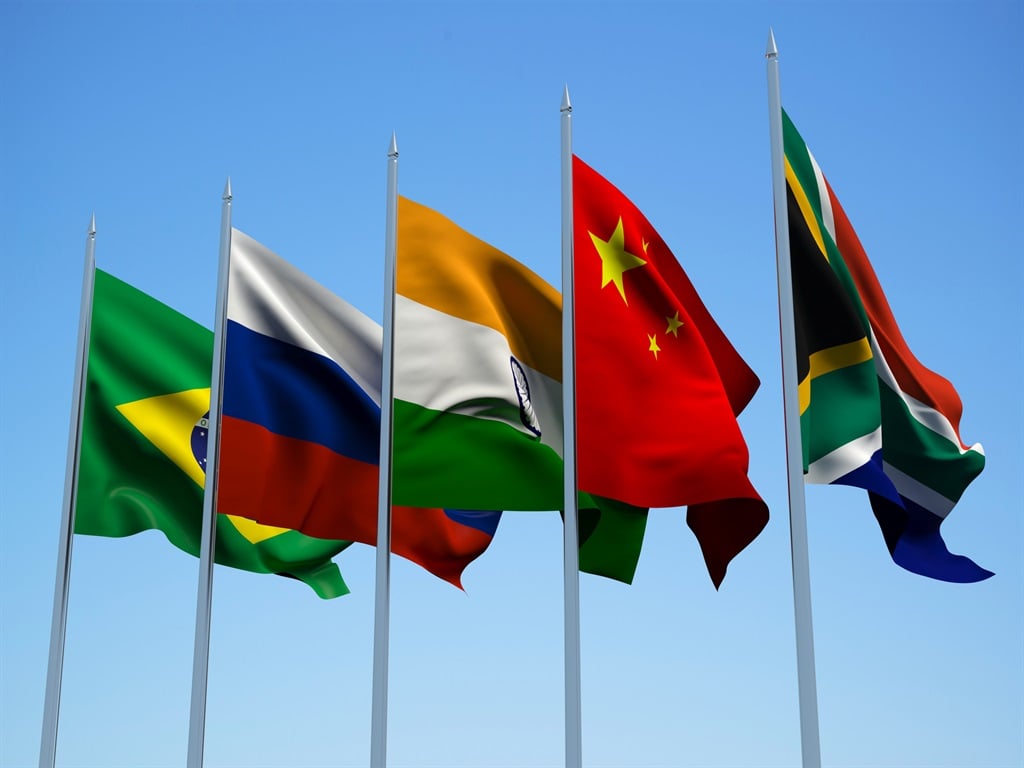
Egypt and Ethiopia — two newer additions to the bloc named for original founders Brazil, Russia, India, China and later South Africa — balked at the group’s backing of South Africa for a permanent seat on the UN Security Council. (Gil-Design/Getty Images)
Shortly after welcoming new members to the club, the BRICS bloc of nations is suffering from the same problem dogging other global multilateral institutions: Its members can’t agree on key issues.
Foreign ministers from the world’s major emerging economies refused to sign a consensus statement at the end of a two-day meeting in Rio de Janeiro, after new members opposed parts of a previously approved plan to reform the United Nations Security Council.
Egypt and Ethiopia — two newer additions to the bloc named for original founders Brazil, Russia, India, China and later South Africa — balked at the group’s backing of South Africa for a permanent seat on the body, according to a statement released by Brazil on Tuesday.
At 2023 talks in Johannesburg, BRICS members agreed to back Brazil, India and South Africa for seats on the council, part of their efforts to make the UN more democratic and representative of the so-called Global South.
The group is working to overcome the differences and could still reach consensus at its leaders summit in July, Brazil Foreign Minister Mauro Vieira said at a press conference after the statement was released.
But the initial disagreement bodes poorly for the group’s ambition to expand its influence on the global stage, filling the void left by traditional multilateral institutions that have long suffered from lack of consensus and paralysis.
Even before expansion, BRICS nations had often struggled to agree on the ultimate aims of the group that formed nearly two decades ago. The need for changes to the Security Council and other major institutions, however, has traditionally united members that have all pushed for more space for developing nations in a global order dominated by Washington and the West.
Donald Trump’s upending of that order since his January return to the White House had created a potential opening for BRICS, which now accounts for about half of the planet’s population and roughly 40% of global GDP.
The US president has pulled back from the world stage since taking office, moving to withdraw his nation from the World Health Organization and Paris Agreement while gutting its chief foreign aid agency and unleashing a trade war that has disrupted the global economy.
At their first meeting since Trump took office, the ministers did generate agreement on language opposing protectionist trade measures, one of the major focuses of the gathering.
They “voiced serious concerns about the rise of unjustified unilateral protectionist measures,” including “indiscriminate raising of reciprocal tariffs and non-tariff measures,” according to Brazil’s statement.
But they avoided mentioning Trump or the US by name, despite China’s indications ahead of the talks that it wanted to leverage the group to push back against Washington.
The group “called upon all sides to take measures to defend free trade and multilateral trading system, with a view to addressing current trade challenges and fostering a favorable trade and investment environment for all,” the statement from Brazil said.
The bloc also forged agreement on language defending multilateral approaches to everything from ongoing wars to climate change.


